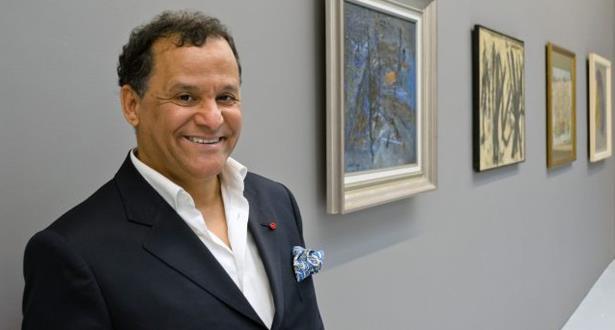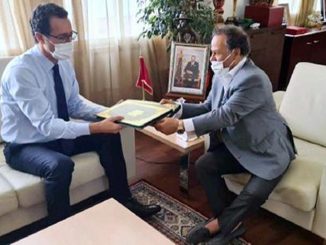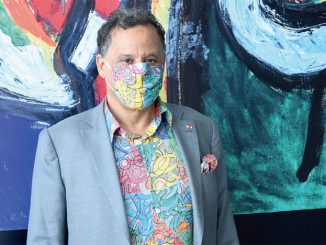
Mehdi Qotbi was not born with a golden spoon in his mouth. Rather, he was born in a working-class neighborhood into a modest family in Rabat, and he had to work hard to access his current situation. A renowned painter, whose works have been the subject of numerous international exhibitions in Paris, Tokyo and New York, he has received numerous decorations, in Morocco and abroad (Choir of Honour, Arts and Letters, Academy, National Merit). He also managed to win the friendship of great intellectuals, presidents and kings, the first of which is HM King Mohammed VI, who appointed him head of the National Museums Foundation.
He is the ambassador of Moroccan art, culture and authenticity from which he has never turned away despite the many years spent in France, his second homeland where he lived after Morocco where he was born in 1951.
Qotbi did not study art in his youth. Admitted to Kenitra’s military school, fate took him out of the army’s universe, after his drawings and scribbles were admired by Morocco’s fine arts pioneer, Ahmed Gharbawi. Thus, the latter introduced him to great art lovers, collectors and dignitaries, including HM King Hassan II who soon surrounded him with a particular affection. And in order to perfect his art by training properly, Qotbi went to the Toulouse School of Fine Arts and, later, to the Paris School of Fine Arts.
Qotbi uses Arabic calligraphy in his paintings, which have been the subject of numerous exhibitions around the world. But in addition to his work on calligraphy, he is known for his artistic creations of jewelry and accessories for women, and this in view of his talent which has enabled him to collaborate with major international fashion houses. He is also involved as a designer of book covers, such as “Paroles d’exil” by Dominique de Villepin, former French Prime Minister.
During his stay in Paris, Qotbi established important friendly relations with great French personalities from various backgrounds: politicians, businessmen, artists, etc., which allowed him to be an excellent intermediary between France and Morocco, particularly during diplomatic crises more or less declared between the two countries.
In 1991, he created the Cercle d’Amitiés franco-moroccan. His network of contacts in influential circles allows him to play an important role in the development of relations in France and Morocco, particularly in the field of culture.




Be the first to comment